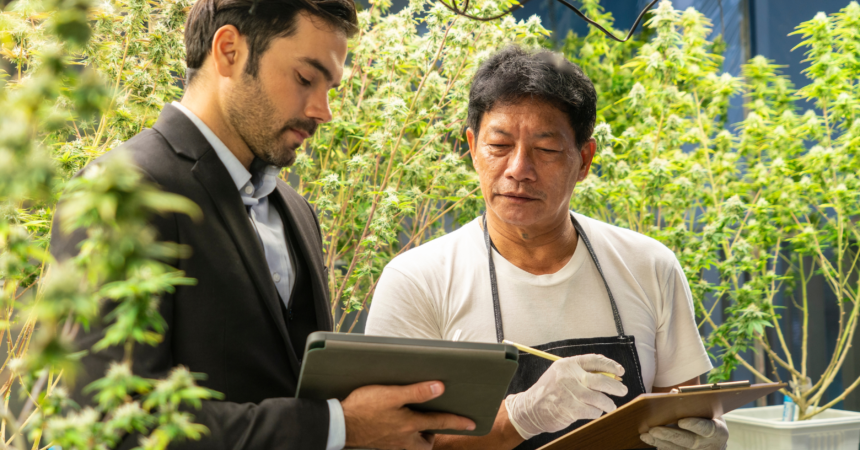In order to access this website you must be of legal age in your region.
Are You Getting a Fair Price for Your Cannabis Crop?

By Gregory Frye
If you are a cannabis supplier, naturally you want a fair price when selling your crop on the market, and while market prices can fluctuate depending on the season, it’s helpful to know what buyers will pay more for, and what they’ll pay less for or avoid altogether.
Jhavid Mohseni, CEO and founder of Tamerlane Trading, the cannabis industry’s first quality verified marketplace, recently sat down to reveal precious insights on these critical nuances cannabis cultivators and suppliers need to know if they want to get a fair price for their cannabis crop.
SORTING YOUR PRODUCT
Suppliers may want to think twice about how they are organizing – or not organizing – their flower by quality type.
“Making sure that your product is sorted according to specific product types is really important,” Mohseni explains. “For instance, if you have A-flower, B-flower and trim all mixed into the same bag, and the buyer is looking for A-flower -- because you’ve got all this other product mixed in, they will want to discount what they would normally pay for it.”
Essentially, if you want to get a fair price for that top-quality flower, you’d better make sure there are no other types mixed in with it.
TRANSPARENCY
Suppliers should be certain to practice transparency. In other words -- you want to make sure you have all the information a buyer would deem important.
“Buyers have different requirements they are interested in, but for the most part, the basics remain the same,” Mohseni notes. “For instance, what was the environment? Indoor, outdoor, hoop house, or greenhouse? Some people will pay more – or less – depending on the environment.”
Mohseni also cautions suppliers against being dishonest about the grow environment, process, or any other aspect of the product. “Some people will lie about what they’re actually selling because they hope to get more money. You might get away with it once or twice, but once people start to figure it out, you will have eroded trust and cheated yourself in the long term.”
Being transparent with the buyers is going to build that trust, Mohseni adds.
GETTING YOUR PRODUCTS TESTED
This ties right into transparency. Getting your products tested for pesticides, heavy metals, cannabinoids, as well as terpenes if there is a lot of flavor there – and being able to present that Certificate of Analysis – is a tremendous value add for the potential buyer, Mohseni explains.
“When you’re a buyer and you’re looking for the product, the more information that’s there, that transparency, the easier it will be for you to make a buying decision and also pay what something is worth,” Mohseni says. “If someone doesn’t know that it’s pesticide free, they’re going to assume it has pesticides on it, or it’s a risk or an unknown.”
Having those test results ready can also help suppliers move greater volumes of cannabis at a faster rate. If there are significant unknowns about a crop, the buyer will purchase less – or maybe nothing at all – because they’ll have to go and test it themselves.
Because testing on the buyer’s end creates a lot of unwanted delays and uncertainty, a lot of time they’ll be willing to pay more than market price for a crop that has already been tested, Mohseni reveals.
QUALITY VERIFICATION
Quality verification is another area that further informs decision-making among buyers while ensuring the supplier is getting a fair market price.
Naturally, a product must be graded before it can be appraised. When you get your product graded, you are verifying its quality based on qualitative and quantitative analysis as defined by the International Cannabis and Hemp Standards (ICHS).
With graders like Big Tree, the service used by Tamerlane, you get a third party whose career is to look at cannabis 100% of the time. “They are in the best place to tell you what your product is and what it isn’t,” Mohseni says, emphasizing that there are added benefits to bringing in graders because they can tell you if you’re short-changing yourself somewhere in the process.
“Graders are in the best place to tell you what you can do in your process, from harvest to dry, to cure, to breaking down the material, to storage – they’re the best ones to tell you what you can change to maximize the value of your crop,” he says. A lot of suppliers, for instance, store their cannabis improperly, degrading its value. A grader will be happy to point that out and make suggestions.
Once your product has been graded, Mohseni continues, you can get an appraisal, which will tell you exactly what your product is worth based on thousands of transactions that are happening over a specific period of time.
BENEFITS OF BROKERAGE
Aside from sorting, transparency, testing, quality verification – and even storing your cannabis properly – Mohseni’s other big piece of advice to suppliers is to collaborate with a broker or brokerage.
“Work with a broker or a brokerage that knows the market, understands the seasonality, understands the things that are going to move or fluctuate in price up and down,” he advises. “Working with a professional sales outlet or source outlet is what it comes down to.”
As a brokerage, Tamerlane Trading provides all these benefits, as well as grading, a certificate of analysis, transparency and a team ready to act as an extension of your own.

Gregory Frye is a storyteller, writer, editor and award-winning journalist with a love for meaningful collaboration. Most recently, he was part of the founding team at Green Flower Media, where he spent almost five years as executive online editor.
